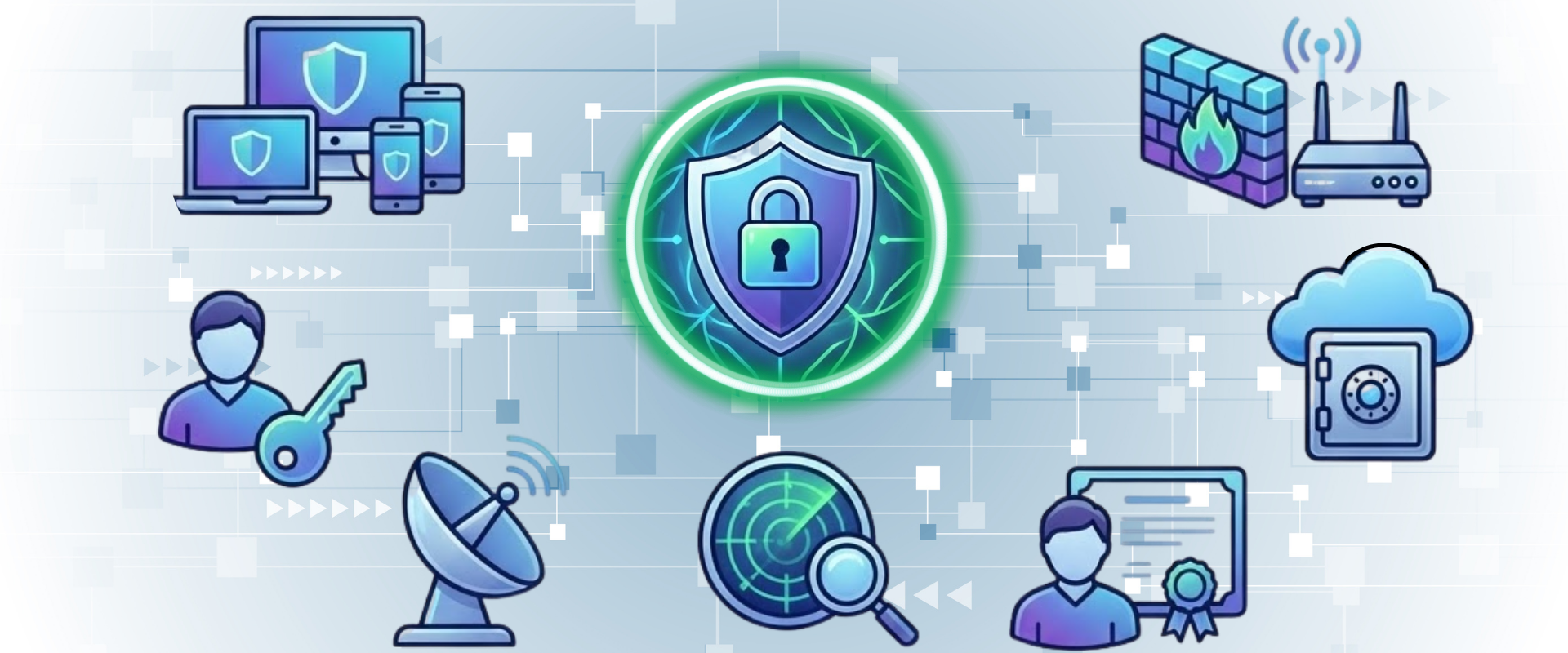Security Standards: CIS and NIST
If you're an Information Technology (IT) professional, you're probably familiar with the idea of security standards put into place for IT systems and devices. Security standards are designed to ensure data safety and minimize the risks associated with an organization's information systems.
If a business doesn't have proper security standards in place, it might one day find all of its information exposed to the public. It’s especially important in industries such as finance, where sensitive information is often shared among many different people. Keeping important info secure is essential for protecting sensitive data like credit cards and other valuable assets.
The two biggest security standards are administered by CIS and NIST, with NIST being more common in Canada and internationally. Both standards are designed to help companies protect their intellectual property and keep customer information safe. Each of them has its own set of requirements, so it's essential to review both before deciding which one works best for you.
Today, we'll explain what both CIS and NIST security standards are, and why it's important that companies abide by them to keep both customers and organizations safe.
What does CIS stand for in security?
CIS stands for Center for Internet Security, which is a nonprofit organization that focuses on improving private and public cybersecurity. They develop security standards by taking into account the opinions of cybersecurity experts from a variety of backgrounds, including government, private, and academic sectors.
CIS benchmarks ensure compliance with an organization's cybersecurity standards and provide guidelines to help prevent cyber attacks.
What are CIS security standards?
CIS has a set of best practices for IT systems and products. These security standards are used by cybersecurity experts to help guide them through all aspects of IT. They're designed to ensure compliance across all areas of technology through a security policy.
There are currently more than 100 different CIS security benchmarks available online. They cover about 20 different categories and are completely free for anyone to download. However, they're regularly updated to reflect the latest changes in the industry, which means it's important to keep up to date with the latest security standards.
A CIS certification means that the product has been tested to ensure that it complies with CIS security standards. But it takes time and effort to obtain one. Luckily, the test is fairly straightforward, as CIS testing requires very simple answers, and it's well worth the time to obtain the certification.
Why use CIS controls for security and compliance?
There are several reasons why you might want to use CIS controls for both security and compliance. Organizations can easily start using CIS and become compliant.
CIS is very practical and getting a CIS certification isn't too difficult. It requires you to answer different kinds of security questions related to network security, computer security, and more.
CIS has implementation teams that break down into smaller groups depending on the size of your organization. Each team picks the most important questions from their group and asks you to answer them. It usually takes two weeks for an organization to become compliant, but it can sometimes take longer if the organization doesn't end up becoming compliant.
After becoming certified, companies can display the CIS certification logos alongside their products to certify compliance with CIS standards. It looks good to potential clients so it might be important for them to choose your product.
For a long time, CIS security standards were something large companies had to worry about. However, as the Internet becomes increasingly digital, it's important that small businesses ensure that they're prepared to show that their security standards are adequate.
If someone asks you "How's your security?" You don't want to go down the rabbit hole explaining your own company's security policies in a way that person won't understand.
Being able to state "We are CIS certified" shows your professionalism and lets your prospective customer know everything they need to know about your security standards so they can make an informed decision. It’s especially important for companies in the financial and insurance industry to ensure their systems are secure.
However, CIS isn't the only standard for security. Another option for organizations of any scale is NIST.
What does NIST stand for?
NIST is an organization that provides standards for various technologies. It was formerly known as the National Bureau of Standards (NBS) until 1970 when it became part of the United States Department of Commerce. Originally, the National Institute for Standards and Technology (NIST) aimed to develop a framework to promote competition in the technology industry.
NIST sets security standards for controls used by governments and other organizations. Other companies follow these standards because they help ensure consistency among multiple industries. If companies follow NIST security standards, then they're compliant with other security standards, including CIS standards.
NIST is not just associated with the US government; its standards are used by governments worldwide. It’s commonly used in Canada.
What are NIST security standards?
Like CIS, NIST security guidelines are based on best practices established by various security experts, documents, and organizations. The most commonly used NIST security standard for cybersecurity professionals is the NIST Cyber Security Framework.
The NIST Cybersecurity Framework includes various activities and references about different approaches to cybersecurity. It also includes a “Framework Implementation Tier” which is used by organizations to review their cybersecurity strategy and risk level.
The categories set in NIST's cybersecurity framework boil down to 5 functions:
- Identity: Processes and assets that need protection.
- Protect: Implementation of safeguards to assure asset protection
- Detect: Plan to identify the occurrence of cybersecurity threats.
- Respond: Techniques to minimize the impact of cybersecurity threats.
- Recover: Implement the right processes to restore capabilities after a threat.
NIST's cybersecurity frameworks aren't as simple as providing checklists for organizations to follow. The framework provides guidance for customizing the toolkit to an organization's unique risk and needs.
What are the benefits of the NIST cybersecurity framework?
You implement the learning of experts who have identified potential cybersecurity risks and developed prevention plans as well as solutions by using the National Institute of Standards and Technology (NIST) cybersecurity framework.
Within a large organization, cybersecurity can be difficult to manage and keep up with, which means that things can easily slip through the cracks. Some assets are at greater risk than others and therefore require your immediate attention. If you're unable to identify your biggest potential issues, you risk placing your organization at risk of a cyber security attack.
NIST helps you decide which security measures are most important for your organization based on its assets and risk levels. Security standards set by the National Institute of Standards and Technology (NIST) provide a framework for conversations between the board of directors and others regarding the security of an organization.
Complying with NIST security standards results in an organization developing a more secure infrastructure, especially since NIST sets the standard for other regulatory agencies, such as CIS.
NIST's cybersecurity frameworks are more flexible than CIS's ones. Whereas CIS questions for security compliance are very black and white, NIST allows paragraph responses, which allow you to paint a fuller image of your company’s cybersecurity strategy.
It's worthwhile making sure that your products or organizations comply with either the Common Information Security Standards (CIS) or National Institute of Standards and Technology (NIST) guidelines for cybersecurity to minimize the risk of a cybersecurity threat to your clients, stakeholders, and your business.
Frequently Asked Questions
Recent Posts














